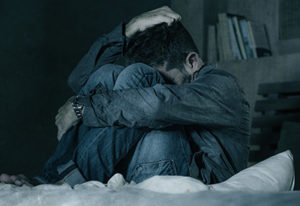Schizoaffective disorder involves a complex combination of schizophrenia and mood disorder symptoms that can be difficult to diagnose. Any combination of hallucinations, delusions, depression, and mania are best treated in a professional and compassionate setting. Viewpoint Dual Recovery offers long-term treatment for people struggling with schizoaffective disorder and many other conditions. Progress is possible in the right treatment setting. Contact Viewpoint Dual Recovery to learn more about our remarkable programs for treating schizoaffective disorder.
Understanding Schizoaffective Disorder
People with schizoaffective disorder may show signs of hallucinations, delusions, and other symptoms, including:
- Disorganized thinking
- Depression
- Manic behavior
- Inability to reason and function
- Lack of personal hygiene
Without treatment, people who have mental illnesses may struggle with the following issues:
- Becoming socially isolated from friends and family
- Constant unemployment because of an inability to focus on tasks
- Feelings of anxiety
- Substance abuse and addiction issues
- Problems with family relationships
- Ongoing physical health problems
- Thoughts of self-harm and suicide
Diagnosing and Treating Schizoaffective Disorder
Diagnosing schizoaffective disorder in a person involves pushing through to make sure that other mental illnesses are not the primary cause of the symptoms on display. Mental health professionals generally rely on the following guidelines in diagnosing the mental disorder.
- There must be an uninterrupted period where a mood disorder episode, either manic or depressive, that occurs at the same time a person displays signs of schizophrenia.
- Individuals must display signs of hallucinations or delusions for at least two weeks during a time where there are no signs of a mood disorder.
- Have symptoms that meet established criteria for a mood disorder present during the duration of the illness.
- Have symptoms unrelated to any prescribed medication or drug use.
It’s important to note that until you get the proper diagnosis, treatment cannot begin. Sadly, many people who struggle with schizoaffective disorder don’t want to receive treatment. They may turn to drugs or alcohol to cope with these symptoms. In such cases, dual diagnosis treatment, such as the ones found at Viewpoint Dual Recovery Center, is your best option.
Treating Schizoaffective Disorder
Viewpoint Dual Recovery Center varies its treatment of schizoaffective disorder depending on the severity of the symptoms manifesting from the illness. Many of our clients respond well to a combination of various therapies, medication, and help with life skills. Some benefit by admitting themselves for inpatient hospitalization. We also offer men’s and women’s treatment programs. These programs allow our clients to focus entirely on their recovery.
The medications used for treating schizoaffective disorder include antipsychotics, mood stabilizers, and antidepressants. Our team of professionals provides constant monitoring to ensure clients receive the best care. We make adjustments as needed to help clients achieve the best outcome from their treatment plan.
Most (90%) clients come to our facility with a dual diagnosis. They may be dealing with a drug or alcohol addiction that also needs care. The staff at Viewpoint Dual Recovery Center gives each client a thorough evaluation to ensure we capture all their needs and map out a practical course of treatment.
We make the entire process work through alliances with therapists, psychiatrists, case managers, and clinical staff. That allows us to help clients at different stages of their illness and craft unique treatment plans to suit their needs.
Get Help With Your Mental Health Diagnosis
You don’t have to feel trapped by your diagnosis. At Viewpoint Dual Recovery Center, we strive to help people just like you overcome their mental health diagnosis. For clients who qualify, at Viewpoint, we can initiate clozapine treatment or optimize an existing clozapine treatment plan for those who suffer from schizoaffective disorder.
Call today at 855.746.3633 if you’re ready to start dealing with an illness that may consume your life.
Frequently Asked Questions
Q: How do you address dual diagnosis in treating schizoaffective disorder?
A: We provide a thorough evaluation to identify all needs, including substance abuse, and create a comprehensive treatment plan involving therapists, psychiatrists, case managers, and clinical staff.
Q: Can schizoaffective disorder be cured?
A: While there is no cure, it can be effectively managed with a combination of medication, therapy, and lifestyle changes.
Q: How long does schizoaffective disorder treatment typically last?
A: The duration of treatment varies depending on the severity of symptoms and individual needs but can range from several months to long-term care.
Q: What types of therapies are used in treating schizoaffective disorder?
A: Therapies include cognitive-behavioral therapy (CBT), individual counseling, group therapy, life skills training, and other evidence-based treatments tailored to individual needs.
Q: Can I receive inpatient treatment for schizoaffective disorder?
A: Yes, Viewpoint Dual Recovery offers inpatient hospitalization for those who need intensive treatment and a focused recovery environment.
Q: What is the cost of schizoaffective disorder treatment at Viewpoint Dual Recovery?
A: The cost of treatment varies based on the specific treatment plan, length of stay, and services required. It’s best to contact us directly for detailed pricing information.
